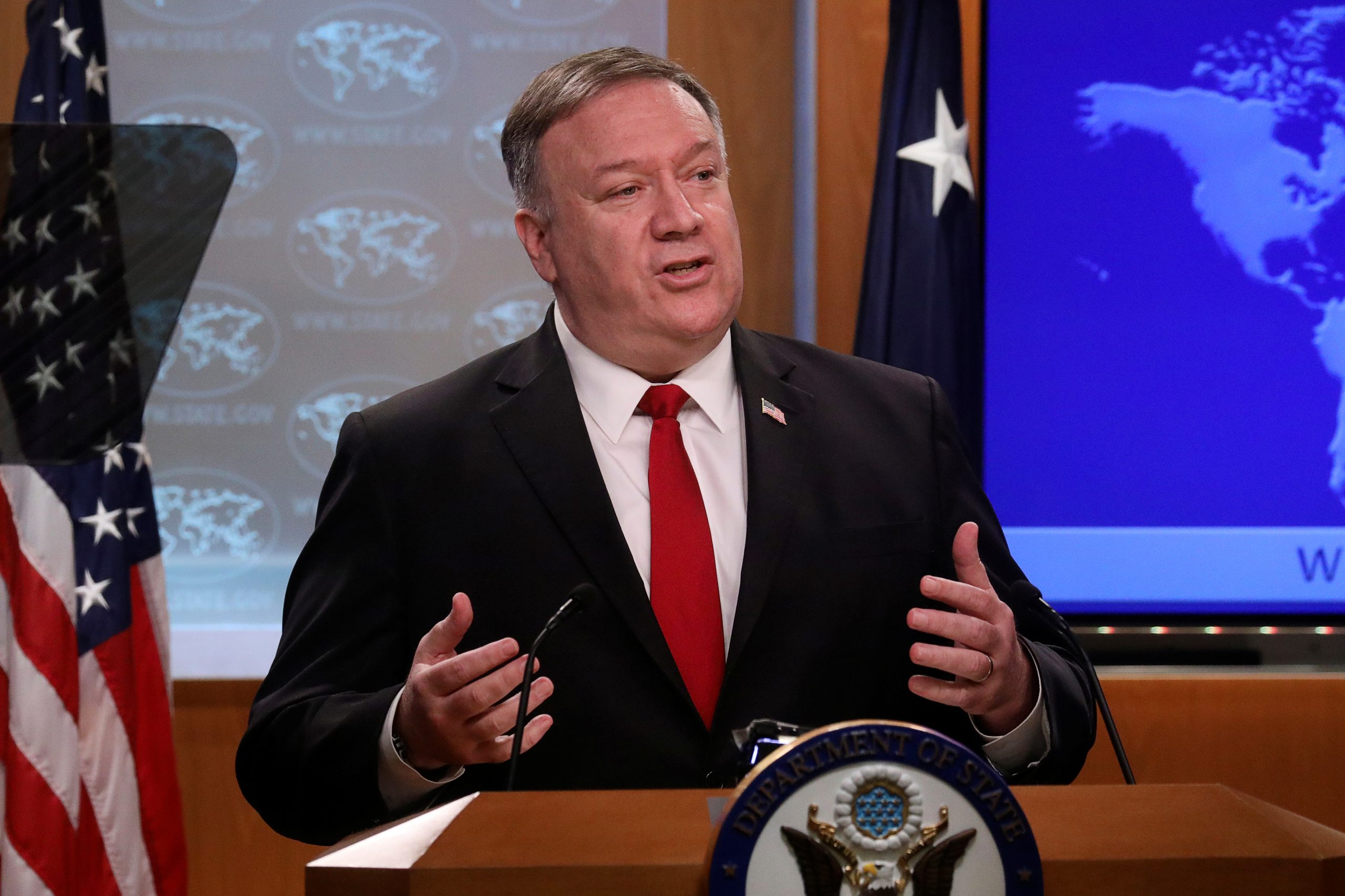Secretary of State Mike Pompeo says Hong Kong can no longer be viewed as autonomous as China is expected to pass a controversial security law.
“Today, I reported to Congress that Hong Kong is no longer autonomous from China, given facts on the ground,” Pompeo said in a tweet on Wednesday afternoon.
He added, “The United States stands with the people of Hong Kong.”
Today, I reported to Congress that Hong Kong is no longer autonomous from China, given facts on the ground. The United States stands with the people of Hong Kong.
— Secretary Pompeo (@SecPompeo) May 27, 2020
In a separate statement, Pompeo continued, “No reasonable person can assert today that Hong Kong maintains a high degree of autonomy from China, given the facts on the ground.”
“Hong Kong and its dynamic, enterprising, free people have flourished for decades as a bastion of liberty, and this decision gives me no pleasure. But sound policy making requires a recognition of reality. While the United States once hoped that free and prosperous Hong Kong would provide a model for authoritarian, it is now clear that China is modeling Hong Kong after itself.”
In light of China’s actions, Pompeo said, “Hong Kong does not continue to warrant treatment under United States laws in the same manner U.S. laws were applied to Hong Kong before 1997.”
Pompeo reports to Congress Hong Kong is “no longer autonomous”
— Meridith McGraw (@meridithmcgraw) May 27, 2020
“While the United States once hoped that free and prosperous Hong Kong would provide a model for authoritarian China, it is now clear that China is modeling Hong Kong after itself.” pic.twitter.com/mug1mWEd2z
Officials in China’s Communist Party announced last week that the government would introduce the controversial security law that would severely limit Hong Kong’s autonomy.
The law would prohibit “splittism, subversion, terrorism, any behaviour that gravely threatens national security and foreign interference.”
A similar law was introduced in 2003 by Hong Kong’s chief executive, but sparked massive protests and was not re-introduced since. But officials in Beijing have apparently grown tired of waiting and decided to vote on the law this week.
During a press conference on Tuesday, White House Press Secretary Kayleigh McEnany said Trump was “displeased with China’s efforts.”
Trump also said his administration was “doing something now” in response to China. He added, “I think you’ll find it very interesting. But I won’t be talking about it today. It’s something you’re going to be hearing about… before the end of the week — very powerfully I think.”

























 Continue with Google
Continue with Google